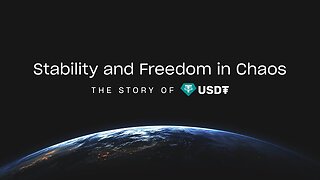Premium Only Content

Core Concepts Tanya: Chapter 25
Brief recap of Chapter 25:
Chapter 25 returns to the verse, "This thing is very near to you, in your mouth and in your heart, to do it."
When we first focused on this idea, we were learning about the Hidden Love, the "pilot light," inside every Jew. The spark of G-d deep within ourselves that can never be tainted or affected by the outside world in any way. This pilot light is an inheritance from our forefathers, so we have the potential to access it at any time and in any place.
With this in mind, Torah and Mitzvot do seem more accessible to us.
However, with what we've been learning about how sin affects our relationship with Hashem, things aren't seeming so near anymore.
2. The Alter Rebbe insists that even with all these challenges and temptation, we each have the power and ability to tap into our Hidden Love and use it to overcome whatever we're facing.
At any moment, we can chuck off the "spirit of folly" trying to take over and lead us to do things we shouldn't.
At which point, we must engage the pilot light.
The soul is like a flame, and a flame always flickers upward, no matter where a person comes from. We can tap into our inborn love (/fear) at any time to return ourselves to the proper path of service.
3. The chapter now focuses on two parts of one verse.
"Turn from evil and do good."
4. "Turn from evil," means to refrain from sin.
The same fear of separation which leads us to choose sacrificing ourselves rather than commit idolatry and deny Hashem should also be used to overcome temptation and "minor sin."
How? Well, refraining from a minor sin is much easier than sacrificing a life!
Even though there’s always Teshuvah, remorse and return from our misdeeds, we should consider that our relationship to Hashem is so important and so vital that we would never allow even a momentary separation from Him.
5. This same attitude applies to "Do good."
When the "other side" senses we're on the right track, it tries to interfere with heaviness/laziness.
It tries to push a mitzvah off for another day. It tries to cool our passion for doing a mitzvah. It tries to prevent us from "straining ourselves" or exerting too much energy when it comes to learning Torah or doing Mitzvot. "It's too hard...you worked hours for this money...I'm not in the mood...I'm not that kind of person."
Which is why, Tanya asserts, we have to be EXTRA strong and vigilant in overcoming it.
Where do we get the strength?
With the same tool we use to keep from doing a sin.
Surely doing this mitzvah right now, surely exerting this little extra energy is nowhere near what it takes to sacrifice a life for Hashem.
Of course we can do the mitzvah!
6. Because our Divine Soul is an actual piece of Hashem's essence, it exists in the realm of the Divine, operating in a world above time and space.
Therefore, any sin, no matter how small, even though it only lasts a moment, that moment of separation is too long to the soul, so it tries everything it can to prevent us from doing wrong.
7. However, EVERY MITZVAH IS ETERNAL.
Hashem and His Torah transcend time. He existed before the world was created and will exist forever after. Hashem looked into the Torah and created the world, so the Torah, Hashem's wisdom, exists with Him on that plane above time and space.
When we refrain from sin, we prevent (temporary) separation.
When we do a mitzvah, we (1) actively bind ourselves to Him and His will, and (2) do something eternal.
8. When we do a mitzvah, we reveal Hashem's inner will, which creates a bubble in time wherein separation is impossible. This in turn leads to a moment of perfect unity between both souls and Hashem.
In this time-limited world, this unity lasts for as long as we are engaged in Torah and Mitzvot.
HOWEVER, in the worlds beyond this world, in the upper spheres and spiritual dimensions, the unity between the soul and the Divine is eternal because they transcend time.
9. Moshe instructed the people to say the Shema prayer twice every day, morning and night.
The Shema prayer is about accepting and submitting to the Kingdom of Heaven, it is the prayer of martyrs and self-sacrifice, the prayer of the ultimate acknowledgement of Hashem’s absoluteness.
Moshe's instruction for the Shema wasn't just for the generation entering the Promised Land, but for ALL generations to follow.
Moshe was teaching that Torah and Mitzvot are contingent about this constant awareness of self-sacrifice. Remembering what our connection to Hashem is worth will keep us from sin and keep us on the path of Torah and mitzvot.
This chapter reminds us of how much our actions matter!
The "little" and "big" things have value and significance, and the good we do lasts forever.
No matter who a person is or where they're coming from every mitzvah done is eternal.
Some people may fulfill a mitzvah with more love or awe, some may know more about what they're doing and why, but no one's mitzvah is "more eternal" than anyone else's.
Wherever we are in our journeys, each mitzvah we do affects a permanent change in this world and creates a permanent bond in our relationship with Hashem.
So we strengthen it, one mitzvah at a time.
-
 LIVE
LIVE
vivafrei
9 hours agoEp. 248: "Bitcoin Jesus" Begs Trump! Rekieta Gets Plea Deal! Pardons, Deportations, Bird Flu & MORE!
18,448 watching -
 3:44:06
3:44:06
Rising Rhino
8 hours ago $7.78 earnedWashington Commanders Vs Philadelphia Eagles: NFL NFC Championship LIVE Watch Party
18.9K2 -
 13:00
13:00
Exploring With Nug
2 hours ago $0.95 earnedHe Went To Get A Haircut And Vanished WIthout a Trace!
14.1K -
 18:53
18:53
DeVory Darkins
1 day ago $18.93 earnedTrump JUST ENDED Mayor Karen Bass During HEATED Meeting
44.8K101 -
 21:06
21:06
Russell Brand
6 hours agoIT'S COMING
73.3K307 -
 21:26
21:26
Stephen Gardner
1 day ago🔥What JUST leaked out of Congress must be STOPPED NOW!
90.9K230 -
 53:25
53:25
tether
11 days agoStability and Freedom in Chaos: The Story of Tether USD₮ | Tether Documentary (USDT)
114K5 -
 56:44
56:44
VSiNLive
2 days agoFollow the Money with Mitch Moss & Pauly Howard | Hour 1
58.3K2 -
 36:50
36:50
Anthony Pompliano
2 days ago $14.70 earnedInvestors Are ALL-IN On Bitcoin
56K14 -
 32:19
32:19
SB Mowing
9 days agoA Backyard She’s NEVER Seen – Now Safe for the Kids to Play!
54.5K28